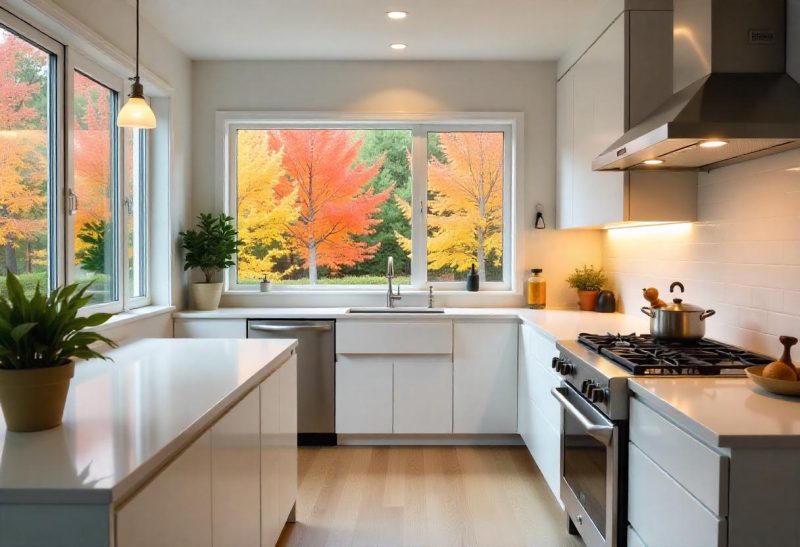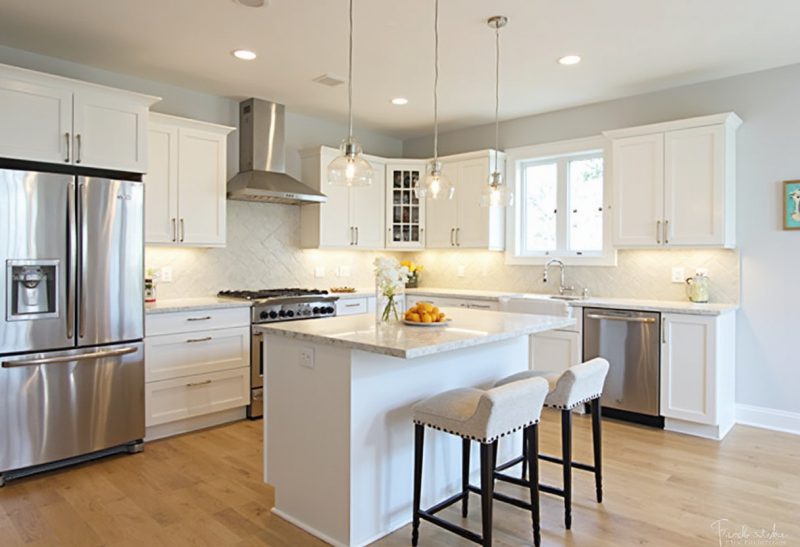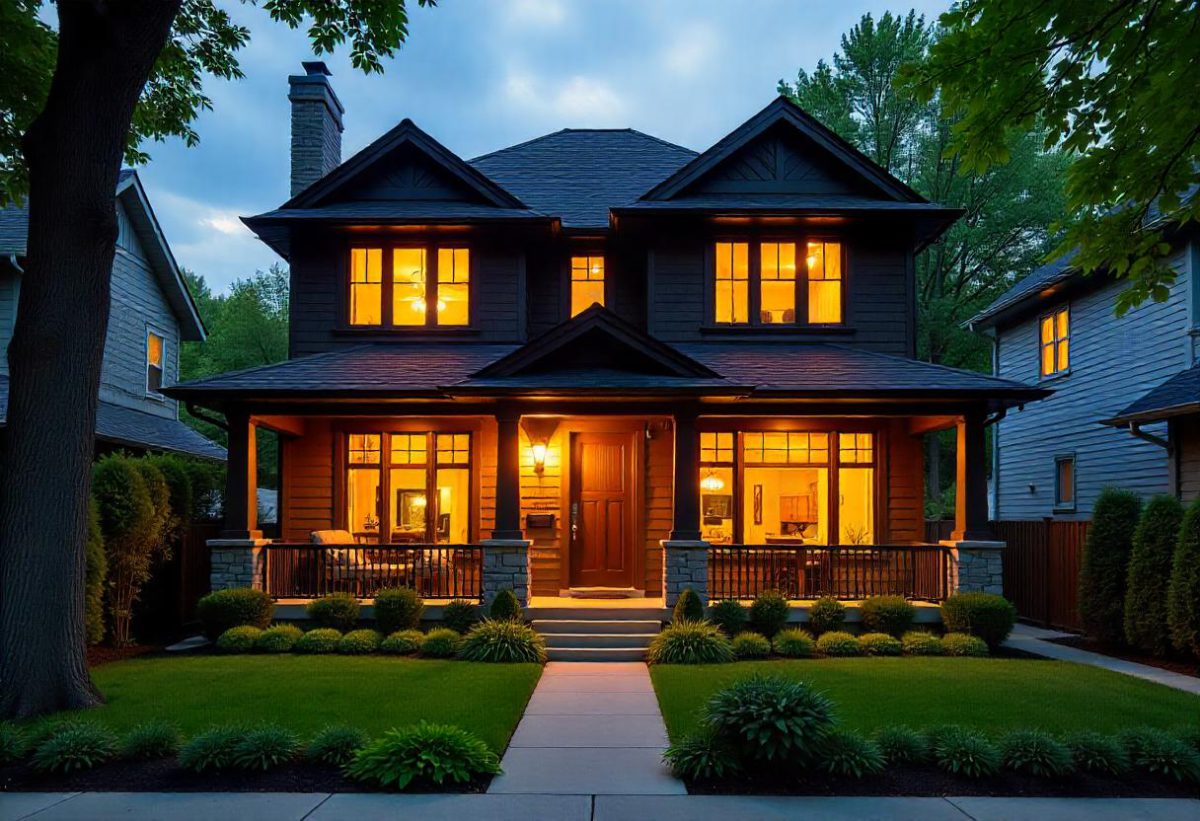Energy-efficient Home Renovation not only reduces utility costs but also improves indoor comfort and sustainability. Toronto homeowners are increasingly investing in eco-friendly upgrades.
Best Energy-Efficient Home Renovation Strategies
✅ 1. Insulation Upgrades
High-quality insulation significantly reduces heat loss. Options like spray foam and rigid foam board insulation help maintain consistent indoor temperatures and lower heating costs.
✅ 2. Window & Door Replacements
Energy-efficient windows with double or triple glazing minimize heat transfer and improve soundproofing. Look for Energy Star-rated products for maximum efficiency. Toronto’s harsh winters demand windows that balance insulation and aesthetics. Upgrading to energy-efficient models can slash heating bills by 15–25%. Here are the best options for local homes:
2.1 Triple-Pane Windows
Ideal for historic homes in Cabbagetown or Rosedale, triple-pane windows with argon gas fill reduce heat loss and noise from busy streets like Yonge or Bloor.
2.2 Low-E Coatings
Low-emissivity (Low-E) coatings reflect infrared heat while allowing natural light—perfect for south-facing windows in Scarborough or North York. Pair with insulated frames to prevent thermal bridging.
2.3 Fiberglass Frames
Durable and low-maintenance, fiberglass resists Toronto’s temperature swings. Unlike vinyl, it won’t warp in extreme cold.
2.4 Storm Windows
A budget-friendly option for heritage districts like Annex, storm windows add an extra layer of insulation without altering original frames.
2.5 Smart Windows
Tech-savvy homeowners in Liberty Village love electrochromic glass, which tints automatically to block summer UV rays.
Toronto-Specific Tips
- Permits: Check if your area (e.g., Old Toronto) requires heritage compliance.
- Rebates: Enbridge and Home Efficiency Rebate programs offer incentives for ENERGY STAR® windows.
✅ 3. Smart HVAC Systems
A smart thermostat optimizes heating and cooling, adjusting temperatures based on occupancy patterns. High-efficiency furnaces and heat pumps further reduce energy consumption.
✅ 4. Solar Panels & Renewable Energy
Government incentives make solar energy a viable option for homeowners looking to reduce reliance on traditional power sources. Net metering allows you to sell excess energy back to the grid.
Cost Savings Analysis
| Upgrade Type | Cost Range | Annual Savings |
| Smart Thermostat | $150 – $500 | $200 – $300 |
| Insulation | $3,000 – $10,000 | $500 – $1,500 |
| High-Efficiency Windows | $8,000 – $20,000 | $600 – $1,000 |
Conclusion
Investing in energy-efficient home renovation not only enhances sustainability but also delivers long-term savings on utility bills.

1. “Seal the Deal: How Air-Tightening Your Home Saves Energy and Money”
Airtightness is the cornerstone of energy efficiency. Heat loss through drafts and leaks can account for up to 30% of a home’s energy waste. Start by sealing gaps around windows, doors, and electrical penetrations with caulking or spray foam. Pay special attention to rim joists, attic hatches, and basement headers—common culprits for air leakage. In Toronto’s climate, where winters dip below -20°C, a well-sealed home reduces strain on heating systems and slashes utility bills. Pair this with a continuous air barrier system (e.g., high-quality house wrap or taped rigid insulation) to block convective heat loss. For older Toronto homes with stone foundations, sealing cracks and adding dampproofing prevents cold drafts and moisture intrusion.
2. “Windows to the Future: Upgrading to High-Performance Glazing in Cold Climates”
Windows are a double-edged sword: they provide light but often leak heat. Modern solutions like triple-pane windows with low-emissivity (Low-E) coatings and argon gas fills minimize heat transfer while maximizing natural light. In Toronto, south-facing windows can harness passive solar gains during winter, reducing heating demands. ENERGY STAR®-certified models with insulated frames (vinyl, fiberglass, or wood-clad) prevent thermal bridging, a common issue in neighborhoods like Cabbage town’s heritage homes. For condos downtown, consider installing interior storm windows as a cost-effective retrofit. Don’t forget weatherstripping—replacing worn seals on existing windows can improve efficiency by 10–15% instantly.
3. “Smart HVAC Upgrades: Balancing Comfort and Efficiency in Canadian Winters”
Heating accounts for 60% of a Canadian home’s energy use. Start with a high-efficiency furnace (AFUE 95%+) or heat pump, which can cut heating costs by 30%. Pair it with a heat recovery ventilator (HRV) to maintain fresh air without losing warmth—a must for airtight Toronto homes. Programmable thermostats optimize temperatures room-by-room, ideal for multi-level houses in Etobicoke or Scarborough. For older radiators, insulating hot water pipes and upgrading to smart zone valves ensures even heat distribution. Bonus: Enbridge’s rebates for ENERGY STAR® systems can offset upfront costs.
Please Also Read: Top 10 Expert Home Renovation Tips in Toronto

Trust Maple Star Builders for Your Toronto Home Renovation
Investing in energy-efficient home upgrades not only enhances sustainability but also delivers long-term savings on utility bills. Maple Star Builders is a trusted energy-efficient home renovation contractor in Toronto and the GTA, dedicated to helping homeowners achieve superior comfort and efficiency. Call us today!


